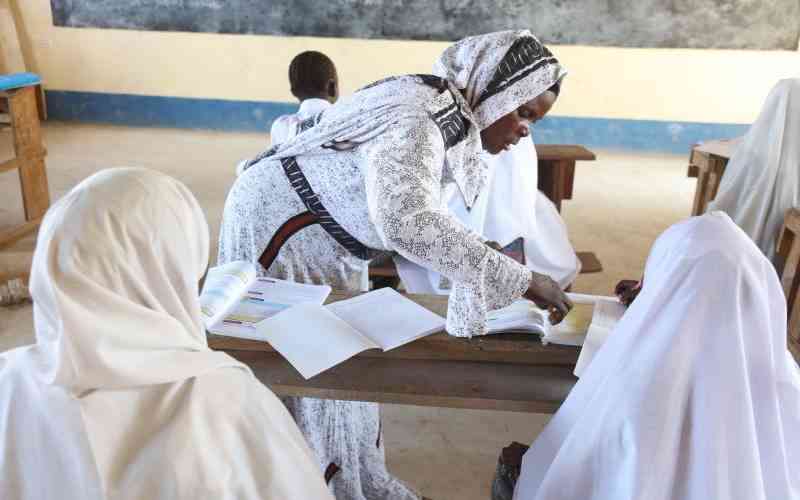 |
| CBK Governor Njuguna Ndung’u |
Being a central bank governor is one of the most difficult assignments to undertake, particularly in an economy like Kenya’s. On one hand, the economy has a lot of potential to grow, but on the other, many Kenyans are poor. This means that any rise in the price of basic commodities would bring much discontent and suffering, yet at the same time, strong credit growth — which is inflationary by nature — is necessary to bring the masses out of poverty.
Navigating these two extremes is what a central bank governor has to do. It is an extremely tough task, and sometimes ‘accidents’ happen when managing this balance. Professor Njuguna Ndung’u, like other governors, did make policy mistakes. But his tenure at the bank will be seen as a big success.
Indeed, if there is anything he has done well on, it has been monetary policy. Naturally, Kenya had hiccups in terms of growth during and after the post-election violence and suffered some effects of the global financial crisis of 2007-8, coupled with severe drought, the eurozone crisis and the Arab Spring, but the monetary policy has generally been well managed. It is not easy keeping inflation and interest rates down, while at the same time having a strong exchange rate — the ‘Unholy Trinity’ that economists struggle to deal with.
What Prof Ndung’u has managed, though, is to keep inflation and interest rates as low as possible and the shilling relatively stable, but not necessarily strong, during most of his time in office. No one can argue with the governor’s approach that lower interest rates are more fundamental to our economy than a strong exchange rate.
Keeping interest rates stable at a time of heavy Government borrowing from the domestic market has been one of his greatest achievements during his first term as CBK governor. The second term, however, was far more problematic as inflation skyrocketed. But these were largely due to supply bottlenecks, as well as a surge in global food and fuel prices, factors that are largely beyond the scope of the monetary policy.
The shilling, like most developing nations’ currencies, also got battered in 2011 mainly due to external shocks following the sovereign debt crisis in Europe that led to investors seeking a safe haven in the US dollar and dumping riskier assets.
The economy’s performance, especially under Ndung’u’s first term, taking into account the post-election violence and global recession, was relatively good and achieved largely due to the sustenance of macroeconomic stability; a product of his effective conduct of monetary policy.
But his performance cannot solely be based on monetary policy; the CBK governor’s mandate also covers financial stability, promotion of growth and acting as the Government’s agent in debt management.
Financial inclusion
Ndung’u captained innovations by the Central Bank of Kenya (CBK) to support financial inclusion initiatives. They include the introduction of mobile and agent banking, Islamic banking, and licensing of deposit-taking microfinance institutions (MFIs) and credit reference bureaus (CRBs). It is through his efforts that Kenya has been globally recognised as a model in financial inclusion, earning CBK a place as a non-G20 member of the Global Partnership for Financial Inclusion.
Since CBK allowed Safaricom to launch M-Pesa, millions of Kenyans have gained access to banking services through their mobile phones. The same has been the case with Airtel Money and other mobile money transfer services. Under Ndung’u’s watch, CBK also put in place laws that have enabled players in the banking sector to share customer credit information with CRBs. This has helped Kenyans build a credit history, a crucial requisite for accessing loans.
He also helped push for a review of the Microfinance Act to enable MFIs to start taking deposits to help improve loan services for low-income earners.
But it is important to note that financial inclusion is not merely about providing reliable access to an efficient payments system or bank account. Neither is it only about microfinance.
Financial inclusion should also be about reliable access to affordable credit. The dimension of financial inclusion that Prof Ndung’u and his team focused on is the one in which banks provide deposits and other payment facilities to the disadvantaged and underprivileged. CBK should have done more in the other equally crucial dimension of financial inclusion — the one that relates to provision of credit facilities to the “financially included”.
Mobile money transfer moved trillions of shillings, and deposits held by Kenyan banks have more than tripled during the outgoing governor’s two terms in office, but not many people with access to the financial system have access to credit facilities, guarantees or direct debit arrangements with financial institutions.
Stay informed. Subscribe to our newsletter
In particular, banks have not used enough of the deposits to lend to disadvantaged and underprivileged customers.
Financial stability
A sound financial system is one of the cornerstones for economic growth. While there is no doubt that financial institutions operated in a risky and challenging global economic environment during Ndung’u’s time in office, the country’s financial system has remained stable.
No financial institution failed during his term, and based on the totality of the banking industry information available, there is no basis for suggesting that the system is facing any risk.
Although the Kenyan financial system was not exposed to the toxic assets that destabilised global financial systems during the global financial crisis, the potential impacts were still there, and the governor and CBK put in place timely measures to address the challenges.
CBK lowered both the Cash Reserve Ratio and Central Bank Rate to ease liquidity and credit restriction in the market, and enhanced surveillance of banks, especially on forex exposures and market risks.
Bank lending rates
A major impediment to the realisation of the desired growth through the intermediation role of the banking industry, is the wide and persistent spread between deposit and lending rates.
The commercial lending rate has been a big challenge. This is one area Ndung’u probably feels let down by the banks and one that is a black mark on his performance during the last eight years.
While the governor has created the macro-economic stability required and constantly urged banks to improve their efficiency to reduce lending rates, these institutions have not done enough to bring the lending rates to more acceptable levels.
Although his powers are limited in a liberalised interest rates regime, there is a general perception the governor could have worked even more closely with banks and encouraged consensus on what constitutes reasonable lending rates.
Subsidiary mandate
The National Payments System is core to the financial system. It is essential that payments systems are not only secure but also efficient. CBK, under Ndung’u, modernised the national payments system and introduced value capping, with all payments above Sh1 million being made through the Real Time Gross Settlement System.
CBK also made efforts to put in place the necessary legal framework to enhance further regulation and supervision of the payments system and payments service providers.
Under Ndungu’s watch, anti-money laundering laws were introduced to help fight fraud in the national payments system.
In a nutshell, Ndung’u leaves CBK in March far stronger than he found it. Faultless he was not, but he will be a tough act to follow.
The writer is senior vice president, financial risk management, Riyad Bank, Saudi Arabia.
[email protected]
 The Standard Group Plc is a
multi-media organization with investments in media platforms spanning newspaper
print operations, television, radio broadcasting, digital and online services. The
Standard Group is recognized as a leading multi-media house in Kenya with a key
influence in matters of national and international interest.
The Standard Group Plc is a
multi-media organization with investments in media platforms spanning newspaper
print operations, television, radio broadcasting, digital and online services. The
Standard Group is recognized as a leading multi-media house in Kenya with a key
influence in matters of national and international interest.
 The Standard Group Plc is a
multi-media organization with investments in media platforms spanning newspaper
print operations, television, radio broadcasting, digital and online services. The
Standard Group is recognized as a leading multi-media house in Kenya with a key
influence in matters of national and international interest.
The Standard Group Plc is a
multi-media organization with investments in media platforms spanning newspaper
print operations, television, radio broadcasting, digital and online services. The
Standard Group is recognized as a leading multi-media house in Kenya with a key
influence in matters of national and international interest.









